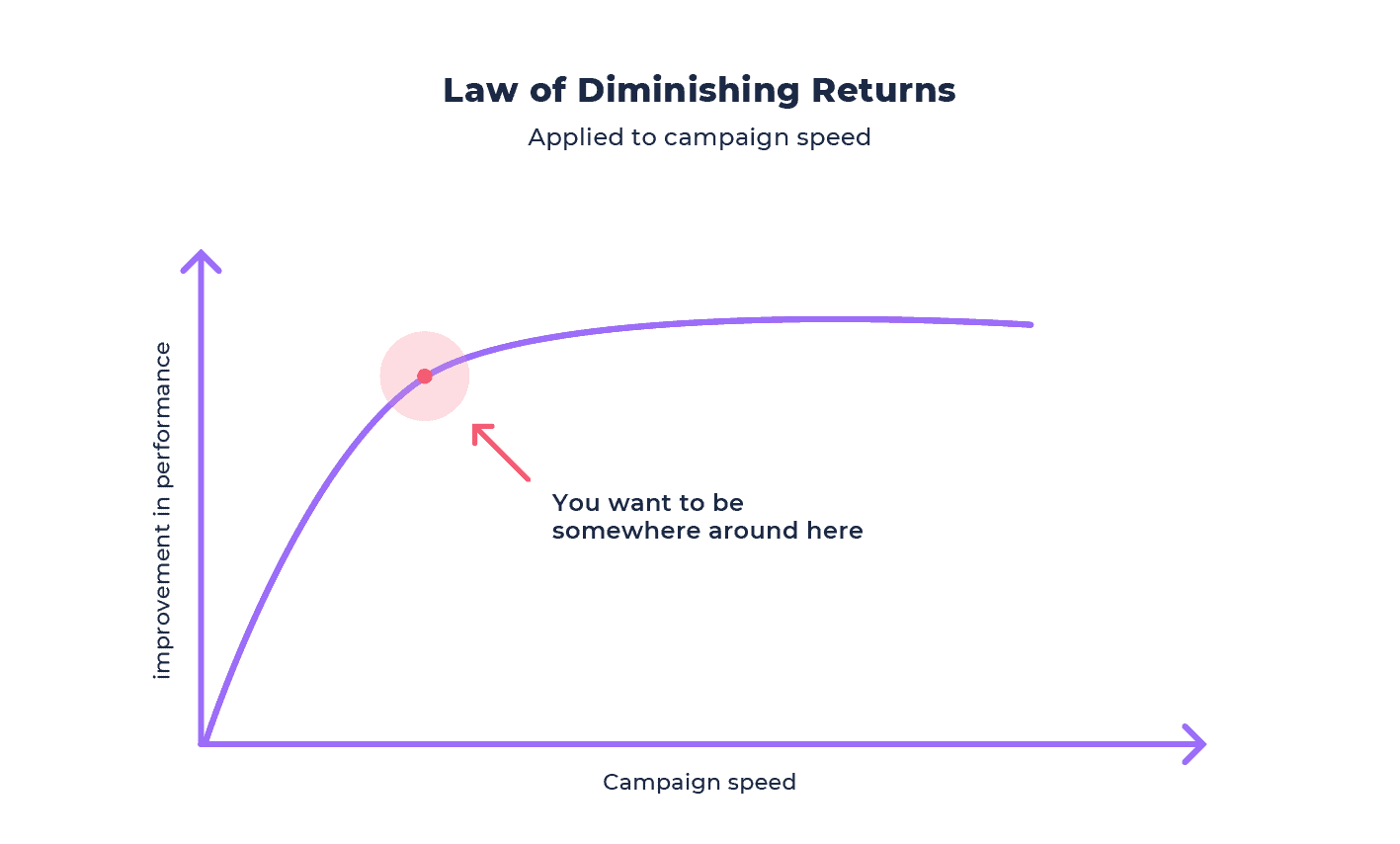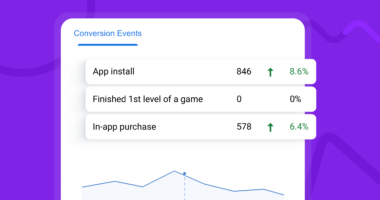There’s a lot of information out there on the internet, some of it good, some of it not so good. The impact of speed on affiliate marketing is no exception to the half-truths and alternative facts. So I’m here to help guide you through some affiliate marketing myths about speed and the help you discover the truth.
In some cases, it’s a simple correction, but in other cases, the truth is, unfortunately, more complex.
Myth 1: Speed Doesn’t Matter in Affiliate Marketing
In digital marketing, speed matters and can have a dramatic impact on the profitability of your advertising campaigns. At one extreme, if an advert, landing page or offer takes too long to load then a user both has the option to close the browser tab when they realize what it is, or get bored and frustrated with waiting and so be more negative toward the advert.
Slowness prevents the feeling of interactivity. When there is a small gap between your input and the result, it feels reactive. But if there is a delay, the illusion is shattered. This stops the user from paying full attention to the material.
Here are some of the latest statistics on the impact of speed on the web
- Bounce rates increase %106 between a 1 and 5 second load time on mobile devices.(Google)
- As much as 50% of visitors will leave your site if it takes longer than just 3 seconds to load. (Akamai)
- 47% of consumer expect pages to load in 2 seconds or less. (Kissmetrics)
- The average web page takes between 8 and 11 seconds to load. (MachMetrics)
- More than half of all web traffic is on mobile devices (Statista) which have slower internet connections.
So yeah, speed will impact your campaign performance.
Myth 2: Speed is Everything in Affiliate Marketing
The other end of the scale is also untrue. If speed was absolutely everything then you’d only see plain text webpages and ads as they load faster. Really, there is a point beyond which speed improvements have negligible impact and other factors will lead to far greater improvements.
For a practical example, a plain text landing pages which load in under half a second won’t perform as well as a landing page that takes 1 second to load but has a much better design including pictures.
As such, you should optimize your performance and various elements in your campaign and look for time savings, but don’t go crazy. Make sure you consider the tradeoffs that may come along.
Myth 3: Speed Is As Important for All Traffic Types
Certain traffic types are affected by speed more than others. For example, speed is more important in Pop up traffic than pop under traffic as a web visitor will see a pop up appear and start to load. If it takes too long, they have time to close the browser window or get annoyed and angry by the ad.
A pop-under will most likely be hidden while it loads and so the user is less likely to notice the load time. Similarly, traffic from something like Facebook will be served using their system and your redirect speed will only affect how fast your landing pages appear and not the advert’s performance.
Admittedly, your tracker and redirect speeds can have an impact on how fast your landing pages or offer loads, but there are other factors at play here. That brings us nicely onto our next affiliate marketing myth about speed.
Myth 4: Your Tracker Is the No.1 Factor in Your Campaign Speed
There are many factors that affect campaign speed and your tracker is one of them, it could even be the key factor causing the most slowdown but it really shouldn’t be. You would need to have both optimized your other elements well and have a terrible tracking solution for this to be the case.
The only way this is true is if you are using a bad tracker you are adding significant time onto your campaign which could result in drops in your performance.
Here’s a common example. A new affiliate tries to save some money and buy some cheap tracking software that he has to host himself. He buys some hosting under a plan that seems like a real bargain (read, cheap) and eventually gets things set up (let’s assume he gets it set up correctly even though that may have taken him a while). Now he runs a campaign and notices massive click loss. Why?
- The software may be buggy and poor performing
- The host may be poor performing or the chosen plan may have insufficient resources
- The location where he is running his campaigns may be far from his tracker’s server (that adds significant time)
- The tracker may use a bad domain DNS
I’ve used an extreme example because it’s useful to highlight the various factors that can all be present leading to slow performance. It’s much more likely that one or two of these factors would be present than all four but it’s not impossible.
Voluum’s setup addresses every part mentioned above
- We created our own database software to handle more events, faster
- Using scalable cloud infrastructure built on AWS so no matter your needs, you get the same top class performance
- Multiple servers in datacentres around the world so your performance is consistent no matter what geo you run in
- We use Amazon Route53 DNS provider which have fast redirects all around the global (more on this later)
If something better comes along, you can bet we’ll jump on it.
If you have a good tracker then you shouldn’t notice dramatic click loss within your campaign, and the benefits of using a tracker will outweigh any downsides.
Myth 5: All Trackers Are the Same When It Comes to Campaign Speed
Um, no. There are different types of trackers made by various companies that use different technologies and have dramatic variations in performance. One of the main distinctions is between self-hosted and cloud-hosted trackers.
A self-hosted tracker is one where you have to buy the web hosting, cloud-hosted trackers have the hosting provided for you. With self-hosting, you have to select a hosting plan (or run your own server you crazy) that will meet your needs. If you have a cloud-hosted tracker another company takes care of managing those servers and will have a larger infrastructure.
In theory, you could have a self-hosted tracker that runs on the same quality of server and delivers the same performance. However, a cloud-hosted tracker company can provide most users with higher quality performance, anywhere in the world, at a lower cost, without downtime if you go over your limits (instead, you pay for overages) and with expert support making sure nothing ever goes down.
Sure those last points aren’t technically about speed, but if your server is down, you have no speed!
Myth 6: Using CNAME DNS Records for Your Custom Domain Instead of A Records Will Dramatically Slow Down Your Speed
The tl;dr. CNAME is a slightly slower method, but it shouldn’t be noticeable at all and there are other benefits to using CNAME over A records. Basically, A records point directly to your IP address but CNAME point to another DNS record which then points to your IP address.
That’s an extra step but it only applies the first time (after which it is cached in the browser) and is only going to be ms slower as this thread on stack exchange explains.
It’s impossible to give an exact time as different DNS providers’ speeds vary, but this site provides a useful comparison of DNS speeds. The majority average around 70ms in some GEOs (that’s 7/100 of a second) and the slowest of which can be up to 290ms in some GEOs (that’s 3/10 of a second). Honestly, there is no way that even the slowest of these DNS redirects would impact your campaign performance noticeable, even if you doubled the time.
It might be possible to find a slower DNS somewhere on the net, but you’d deliberately have to go out searching for something that terrible.
In comparison with the tiny differences between using CNAME and A records, using a server in a separate GEO can add additional seconds and an oversized image or bad script could add an extra couple of seconds to your landing page’s load time. In those examples you will notice a significant impact on your campaign performance with every redirect but the DNS redirect won’t.
There are benefits outside of speed when you use CNAME DNS records like the simplicity of setting up a custom domain and easy of changing service.
Voluum’s Fast, Reliable DNS Setup
At Voluum, we use AWS Route53 DNS which is a cloud-based DNS. That means that our redirects are low in every geo and ensures uptime. For a true perspective of how tiny an impact your tracker’s DNS has on the total load time, check out the graph below.
This is using a really simple, minimal landing page on our sample data account (request 7-day access). As you can see, the DNS lookup is about 1/42 of the total load time or a ninth of the whole domain time (in this case the DNS lookup was 21ms and when the URL was checked again it was only 8ms due to being cached).
You are definitely going to be linking to a page (even if you direct link) that is more complex and takes more time to load. So in real use, this percentage will be even less. Cutting that DNS time in half isn’t going to do anything to your performance.
Myth 7: Self-hosted Trackers Can Scale the Same As Cloud-hosted Trackers
One of the other key issues when it comes to speed is scaling. It’s easier to have fast speeds when you are tracking very few events, but monitoring massively more across multiple GEOs is a different matter. If you have a dedicated tech team or happen to be an expert in server management then you’re good to go, but for the rest of us mere mortals, we’re going to see significant slowdowns at best and, more likely, downtime with wasted traffic.
This isn’t a complete myth, it is possible for self-hosted trackers to scale but it’s not really practical for most of us.
Bonus Affiliate Marketing Myth: You Have to Track With a Redirect
Redirects aren’t the only way to track, you can also use the Direct Tracking Pixel. This is a piece of code that loads when a user opens a page. This doesn’t need the initial redirect in a campaign and is handy for traffic sources which have negative views on redirects and when you are tracking organic traffic.
As it has NO initial redirect, it is the fastest way to track.
There can be some downsides such as certain JavaScript blocking tools preventing the pixel from loading and reporting traffic.
The truth about how speed affects your campaign performance
- Speed is important, but only up to a point
- Your tracker can have a big impact on your performance, but a good one will see you straight
- While it is possible to set up a self-hosted tracker for good performance, a cloud-hosted tracker is a safe bet and offers some extra advantages
- CNAME redirects are not significantly slower and won’t affect your performance
- Voluum employes a range of technologies to prevent any campaign performance impact from redirects





 Get the Fastest Affiliate Tracker
Get the Fastest Affiliate Tracker 


One comment
A very well written article, easy to understand and I am sure I can implement it.